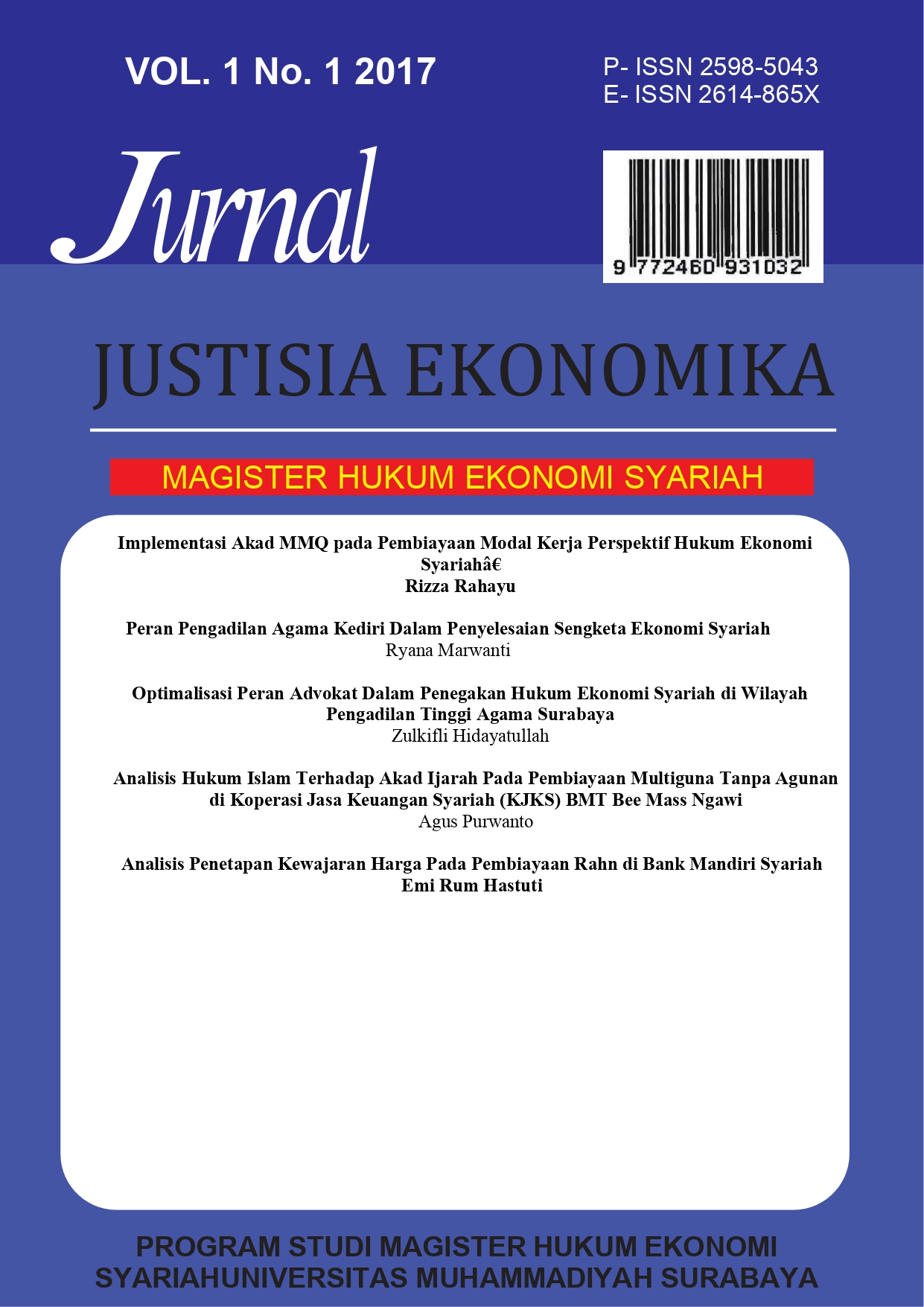Peran Pengadilan Agama Kediri Dalam Penyelesaian Sengketa Ekonomi Syariah
DOI:
https://doi.org/10.30651/justeko.v1i01.1124Abstrak
The formulation of this thesis problem has three aspects, those are: (1) How is the authority of Religious Court of Kediri in resolving sharia economics disputes before the Decision of the Constitutional Court No. 93 / PUU-X / 2012, (2) How is the authority of the Religious Court of Kediri in the settlement of the sharia economics dispute after the Decision of the Constitutional Court No. 93 / PUU-X / 2012 (3) How is the role of Religious Court of Kediri in resolving the sharia economics dispute after the Constitutional Court Decision No. 93 / PUU-X / 2012?
The Research method used is qualitative method since this research describing an object in accordance with reality that is about the role of religious court of Kediri. Technique of collecting data is through interviewing and recording, while the data that has been obtained is analyzed by using descriptive analysis technique with deductive inductive pattern.
Based on the results of the research and the discussion done it can be summarized as follows: 1. The Judges of Religious Court of Kediri disagree if the sharia banking dispute must be resolved through the General Court. Based on the reason that the operational activity in Sharia Bank uses sharia principles, therefore if there is a dispute then the resolution is in the Religious Court instead of General Court. 2. The Judges of Religious Court of Kediri argue that it is true if the resolution of the sharia banking dispute is the absolute authority of the Court within the Religious Court. 3. The role of Kediri Religion Court in facing the existence of authority in the resolution of Shariah economic dispute after the Decision of the Constitutional Court No. 93 / PUU-X / 2012 is through following the technical training of sharia economic dispute resolution held by the Supreme Court and Financial Services Authority, following the education and training held by the courtroom of the Supreme Court and Ibnu Saud University of Saudi Arabia and reading many books related to the sharia economic.
On the basis of the results above, the researcher suggests to Judge of Religious Court of Kediri to be able to improve the quality especially in the field of sharia economy and the law of agreement and hopefully for the further researcher can analyze and examine more about sharia economic disputes both litigation and non litigation.
Â
Key words: Religious Courts, Shari'a Economics, Constitutional Court
Unduhan
Diterbitkan
Cara Mengutip
Terbitan
Bagian
Lisensi
HAK CIPTA
Penulis yang mengirimkan artikel dalam jurnal Justisia Ekonomika harus memahami dan menyetujui persyaratan tentang hak cipta jurnal Justisia Ekonomika sebagai berikut:
1. Hak Cipta tulisan / artikel yang diterbitkan di jurnal Justisia Ekonomika otomatis menjadi hak pengelola jurnal atau publisher
2. Meskipun Hak Cipta atas tulisan yang telah diterbitkan di jurnal Justisia Ekonomika adalah menjadi haknya publisher, tetapi penulis masih mempunyai hak untuk : a). Penulis boleh meng-upload di repository kampus, b). Penulis boleh meng-upload di webnya sendiri, c). Penulis boleh meng-upload di google schoolar, orchid dan sinta
LISENSI
Lisensi atas tulisan / artikel yang diterbitkan di jurnal Justisia Ekonomika adalah menggunakan Creative Commons dengan atribusi CC-BY-NC 4.0






















